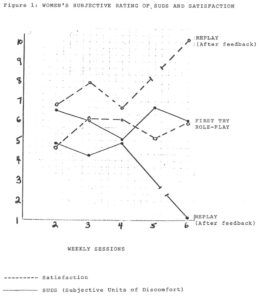The “brainwashing” defense of Patricia Hearst has sent newspaper writers scurrying for explanations of the apparently exotic process that transformed a happy heiress into a gun-toting bank robber with the improbable nom-de-moll of Tanya.
None of these writers has sought to challenge “brainwashing” as a political label or to seek its analogs in everyday American life. Instead they have exhumed the experience of Korea, interviewed prisoners of war, and sought illumination from experts in psychology. The results of their researches are typified by an analysis run recently in The New York Times: “What Happens In Brainwashing Is Only Vaguely Understood.”
In many accounts, “brainwashing” is portrayed as something carried out by insect-like cultures. It is alien, arcane, inscrutable. In a word, it is Chinese. “The Symbionese Liberation Army subjected Patricia Hearst to the same kind of brutal thought control techniques invented by the Chinese Communists,” the Chicago Daily News reported.
Yet must we go to China to understand “brainwashing?” Consider a March 7 account in The New York Times of the continuing maltreatment of U.S. Marine recruits. In the body of the story it is reported that on Parris Island, Marine drill instructors “use fear and stress while putting recruits through a grueling 11 weeks of boot camp designed to break down civilian habits and instill instant obedience.” The Marines call this “building men,” but is it so different from the “brainwashing” program designed by the SLA for its most celebrated draftee?
Or consider the case of a successful safecracker who is arrested, convicted, and sent to prison on an indeterminate sentence of 1-20 years. He rebels at prison life and is thrown into solitary. His “bad attitude” wins him the worst jobs in the prison and continual harassment by the guards. He begins to cooperate with the prison program, realizing that his release date depends on “good behavior.” He becomes a model inmate, joins the prison chapter of Jaycees, studies for college credit through the prison correspondence program, and writes articles for the prison newspaper on good citizenship. He renounces his criminal past and promises to go straight.
Would we say this man has been “brainwashed?” Probably not. We would say he has been “rehabilitated.”
In all three cases — Patty Hearst, the Marine recruit, and the prisoner — radical behavior changes have been achieved using very similar methods. Yet we use different labels to describe the outcomes. The Marine is “trained.” The inmate is “rehabilitated.” But Patty Hearst is “brainwashed.” Obviously, “brainwashing” is in the eye of the beholder.
We seem to reserve the term “brainwashing” for people we admire or envy who have suddenly defected from our norms and embraced some form of deviance. When Charles A. Lindbergh became a vocal advocate of the Nazi regime, incredulous Americans said that he had been “brainwashed” through hypnosis by Hermann Goering. Similarly, Patty Hearst was simply too sweet, too fortunate, too white to have freely thrown in with the SLA. She must have had her brain homogenized.
(The process also works in reverse: Now that Patty is renouncing her SLA participation, Bay Area radicals are suggesting that her parents and her lawyer, F. Lee Bailey, are “brainwashing” her into normality. “Getting Patty to pretend her politics didn’t change in order to save her from a life in prison now merely means that the survivor syndrome has changed hands,” wrote Paul Krassner in the Berkeley Barb.)
“Brainwashing” is a variation on the theme of mental incompetence which is being increasingly used to discredit embarrassing political behavior. When an individual acts alone, we call it “craziness” — as the Nixon administration tried to do with Daniel Ellsberg and as the Ford administration has attempted with CIA defector Philip Agee. When there is a group that can be blamed, we call it “brainwashing.”
“Thought Reform” In Everyday Life
To unmask “brainwashing” as a political label does not settle the issue, for we are still left to explain how such drastic changes can occur and whether persons who have been drastically changed should be held accountable for their behavior.
Experts generally agree that “brainwashing” involves three steps. First, there must be isolation from personal and social supports. (Patty’s closet, solitary confinement, Parris Island). Second, there must be a period of prolonged anxiety. (Patty’s captivity, the inmate’s wait for parole, the Marine’s basic training). Third, there is ultimate identification of the subject with the forces of control. (Tanya, the “model inmate,” the “gung-ho” Marine.)
Underlying the process is coercion — the continuing threat of punishment. Dr. Louis J. West, one of Patty’s defense witnesses, testified that the key to behavior control is making a subject experience “debility, dependency, and dread.”
At first glance, and in the context of the Hearst trial, this sounds horrifying and unusual. But a closer look reveals nothing more than an extreme manifestation of a process we all know very well.
Students often imitate their professors on exams to avoid failing. Men and women stay in oppressive jobs, spout the “company line,” and laugh at the boss’s jokes, to avoid unemployment and poverty. Couples in incompatible marriages stay married to avoid the pain and stigma of divorce, and often tell themselves and their friends that they are “happy.” Witnesses under oath will implicate their friends in crimes, if asked, or face criminal penalties for contempt. Dr. Timothy Leary, once the “high priest” of drug culture, has turned police informant to avoid a prison term. Children learn not to swear around their parents if they don’t want to be spanked. White House aides learned not to talk like “doves” in the Nixon and Johnson administrations if they didn’t want to be fired. Welfare recipients learn to welcome the invasions of social workers to avoid losing their benefits.
These are all examples of performance under aversive control, a term behavioral psychologists use to describe behavior which is motivated by the need to avoid punishment. It is the opposite of positive reinforcement, which describes behavior motivated by the attraction to rewarding activity.
The capacity to adapt to aversive conditions is basic to human survival. If we couldn’t learn how to avoid pain and punishment by altering our behavior — including our speech and thought — we would be goners. “Brainwashing” of every sort — from traditional education in which one recited properly or was thrashed, to military indoctrination, to terrorist “thought reform” — exploits this basic human adaptive capacity.
It takes a sane person to be “brainwashed.” Dr. William Sargent, author of Battle For the Mind, says that “only the exceptional or mentally ill person is likely to resist over very long periods. It is only the lunatic who can be so impervious to suggestion.” More to the point, it is only the lunatic who can be so out of touch with new contingencies of survival that he cannot adapt to them. The average political hostage, prisoner, or Marine recruit, once he has been yanked out of context, threatened severely, and handed a new script for survival, will use his reason and adapt. Even the disciple Peter found it prudent to deny Christ when the heat was on.
This still leaves us with the dilemma of responsibility and the “exceptional” individual. The popularity of “One Flew Over the Cuckoo’s Nest” suggests that we admire individuals who stand up to overwhelming pressure to conform. Yet it is fair to wonder whether the hero of the asylum would be equally admired if he defied a boss, a grand jury, a school teacher, or a military commander. Amnesty for Vietnam war resisters is still an unpopular idea. And an American psychologist, Stanley Milgram, demonstrated in a shocking series of experiments that he could enlist ordinary citizens to become torturers simply by putting them in his lab and asserting his authority.
We are not a society which rewards resistance to authority. Perhaps this is why individuals who survive “brainwashing” are so few and so “exceptional.”
Should Patty Hearst be held accountable, then, for Tanya? The answer is yes and no.
Yes, because the option to resist was always there even though it was remote. And yes, because the legal system cannot weaken its own aversive control by granting indulgence to all who are trapped in outlaw control systems. (How would the government ever prosecute anyone entangled in the Mafia)?
But no, because the compliance of Patty — if that’s what it was — was the compliance of a dutiful daughter, a cooperative student, an obedient woman. Why should we punish traits we value so highly?
Tanya was just an all-American girl.
Received in New York on March 12, 1976
©1976 Ron McCrea
Ron McCrea is an Alicia Patterson Foundation award winner on leave from The Capital Times (Madison, Wisconsin). This article may be Published with credit to Mr. McCrea, The Capital Times, and the Alicia Patterson Foundation.





